Temple’s Logan Center gets to crux of complex community issues
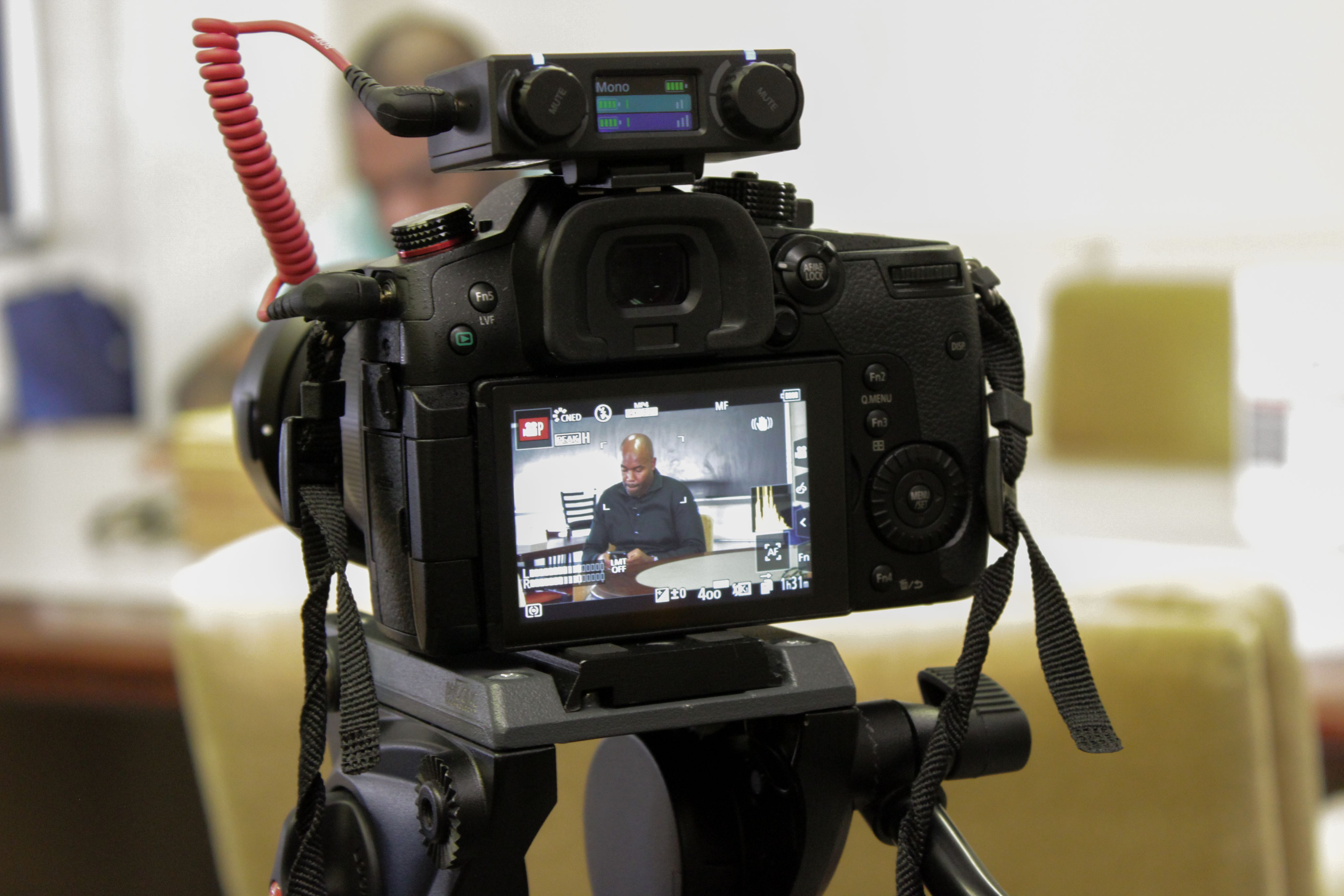
Whether you turn on the news, open a newspaper or scroll through a news site, harrowing headlines are often unavoidable.
“Philadelphia records 500th homicide in 2022.”
“The number of Philly teachers quitting midyear is up 200%.”
“Philly council president floats using stop and frisk to fight gun violence.”
While the headlines tell a story, they do not tell the entire story. And many times, the news articles that accompany the headlines do not provide any semblance of a solution. For award-winning journalist Yvonne Latty, that’s a problem.
“It is almost like, this horrible thing happens, and the next day, another horrible thing happens, but no ever stops to think about it all," Latty said. “No one asks, how can we figure out answers that can fix these things? Because it’s not just all on the city to solve these challenges. It’s on all of us.”
That thinking has served as the impetus behind the Logan Center for Urban Investigative Reporting. Located within Temple University’s Klein College of Media and Communication, the Logan Center opened in July 2022 with Latty as its inaugural director.
It has been launched in part thanks to a $1.2 million founding grant from the Jonathan Logan Family Foundation of Berkeley, California, and is designed to focus exclusively on the issues facing Philadelphia and other large American cities, including gun violence, economic inequality, education and health disparities, crumbling infrastructure, and eroding trust in institutions. The Logan Center’s mission is to tell investigative stories driven by the community. The center, which is comprised of a team of Temple students, media partners, neighborhood leaders and community members, is invested in Philadelphia, its neighborhoods and its community.
“I look at this to be a very solution-centered space,” Latty said. “We listen and then report with empathy and compassion. Together we expose what is not working and what is.”
In just one year, the center has already made considerable progress, partially due to the key partnerships that it has developed with some of the most prominent news organizations in Philadelphia. It has won several awards and as it enters into its second year of existence, it is clear that its impact will only continue to grow.
“It has been amazing to be able to collaborate with organizations like WHYY and The Philadelphia Inquirer and assist with what would go on to become a national, award-winning podcast,” said Allison Beck, a junior journalism major who serves as the social media director for the Logan Center and has worked on a number of projects for the center, including the Playing Fields Not Killing Fields: Can Sports Be the Answer? series where she has had stories published in The Philadelphia Inquirer. “To see myself published in Philadelphia’s newspaper of record, build rapport and make connections has just been really special. I am immensely thankful for the opportunities I have been given thanks to this center.”
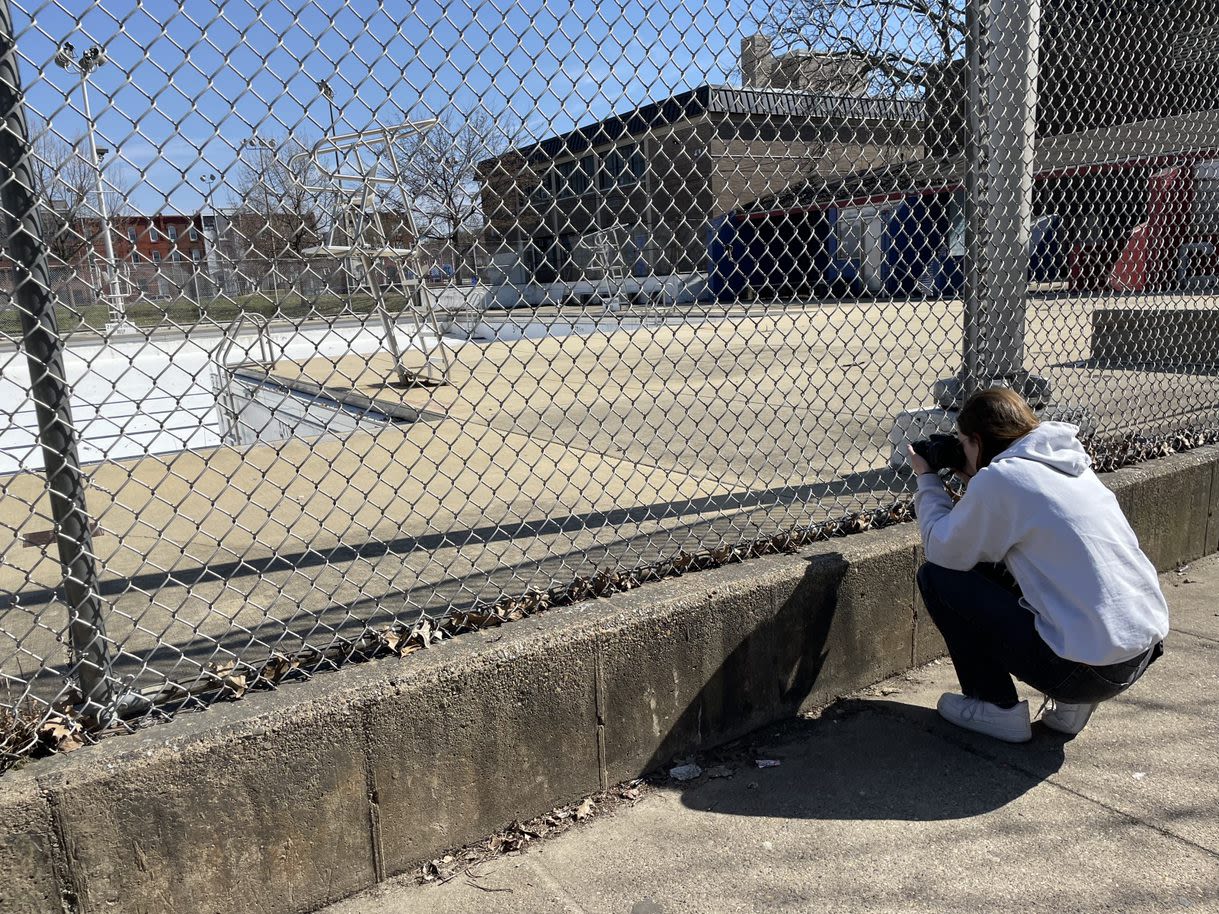
Allison Beck is one of the many Temple students to benefit from opportunities through the Logan Center. A junior journalism major, Beck serves as the social media director for the Logan Center and has worked on a number of projects for the center, including the Philadelphia Inquirer's Playing Fields Not Killing Fields: Can Sports Be the Answer? series.
Allison Beck is one of the many Temple students to benefit from opportunities through the Logan Center. A junior journalism major, Beck serves as the social media director for the Logan Center and has worked on a number of projects for the center, including the Philadelphia Inquirer's Playing Fields Not Killing Fields: Can Sports Be the Answer? series.
‘Stop and Frisk: Revisit or Resist’
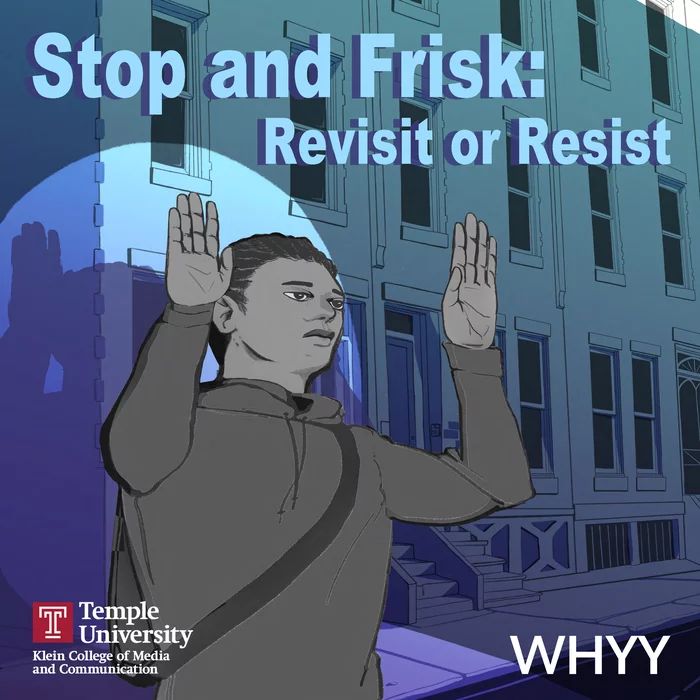
Around the time that the Logan Center opened with Latty at the helm, another news organization in Philadelphia welcomed a new leader. On July 25, 2022, Sarah Glover began her tenure as vice president of news and civic dialogue at WHYY, the leading public media organization in the Philadelphia region.
Around the time of Glover’s arrival, Latty started making inroads at WHYY. She had met with WHYY gun violence prevention reporter Sammy Caiola, where the two discussed a recent news event that had sparked several conversations across the city. In the wake of a shooting that had occurred on the Fourth of July on South Street, City Council President Darrell Clarke exclaimed in council chambers that there was a need to reexamine a controversial policing method, stop and frisk.
Soon, Latty was meeting with Glover to further discuss the topic.
“From the lens of WHYY and what our mission is, which is centered around in-depth reporting and community-focused journalism, this (the City Council president’s comments on stop and frisk) seemed like a very important topic to navigate and unpack,” Glover said. “The Logan Center was just getting started under Yvonne’s leadership, and its focus was also on the community. It was clear that there was a like-minded approach in terms of how we can bring fair and balanced coverage to public safety journalism. That’s essentially the genesis of how our partnership started.”
Together with WHYY, the Logan Center launched Stop and Frisk: Revisit or Resist, a five-episode podcast series that explores diverse perspectives and solutions to the city’s gun violence crisis with a particular focus on the issue of stop and frisk.
The series was produced, co-hosted and written by Latty with students assisting in the production process. The final episode of the series was hosted by Temple student Kole Long and WHYY gun violence prevention reporter Sam Searles, and it featured a community panel.
“Sarah has been a really, really fantastic partner,” Latty said. “That last episode was co-hosted by one of our students, and she really championed that and championed him. That was an incredible opportunity for him.”
One of the ultimate takeaways from the series was that while stop and frisk remains a controversial tactic, it is also a bit more complicated than that. Several community members were opposed to its potential return, but others thought it could be helpful if used in the right context. Above all else, the series highlighted the need for further conversations around both this topic and other issues that impact public safety.
The series would go on to receive considerable recognition. The Stop and Frisk: Revisit or Resist podcast recently earned a national Edward R. Murrow Award for Best Podcast from the Radio Television Digital News Association, which honors “outstanding achievements” in multimedia journalism and is “among the most prestigious in broadcast and digital news.”
- Regional Edward R. Murrow Award: Best Podcast;
- Philly Award: Best Investigative Reporting;
- Keystone Award: Best Investigative Reporting;
- Public Media Journalist Association Award: Best Collaboration (second place);
- Keystone Award: Best Public Service (second place) and
- Keystone Award: Best Enterprise Reporting, Best Use of Sound, Best Podcast (honorable mention).
“We are really happy that we have been able to support the launch of the Temple Logan Center,” Glover said. “The success of the center in its first year is in large part thanks to this partnership coming to fruition, which helped draw national attention to Temple, Klein and the work that the Logan Center is doing. We’re very proud of that at WHYY News, and we are going to continue to work together moving forward.”
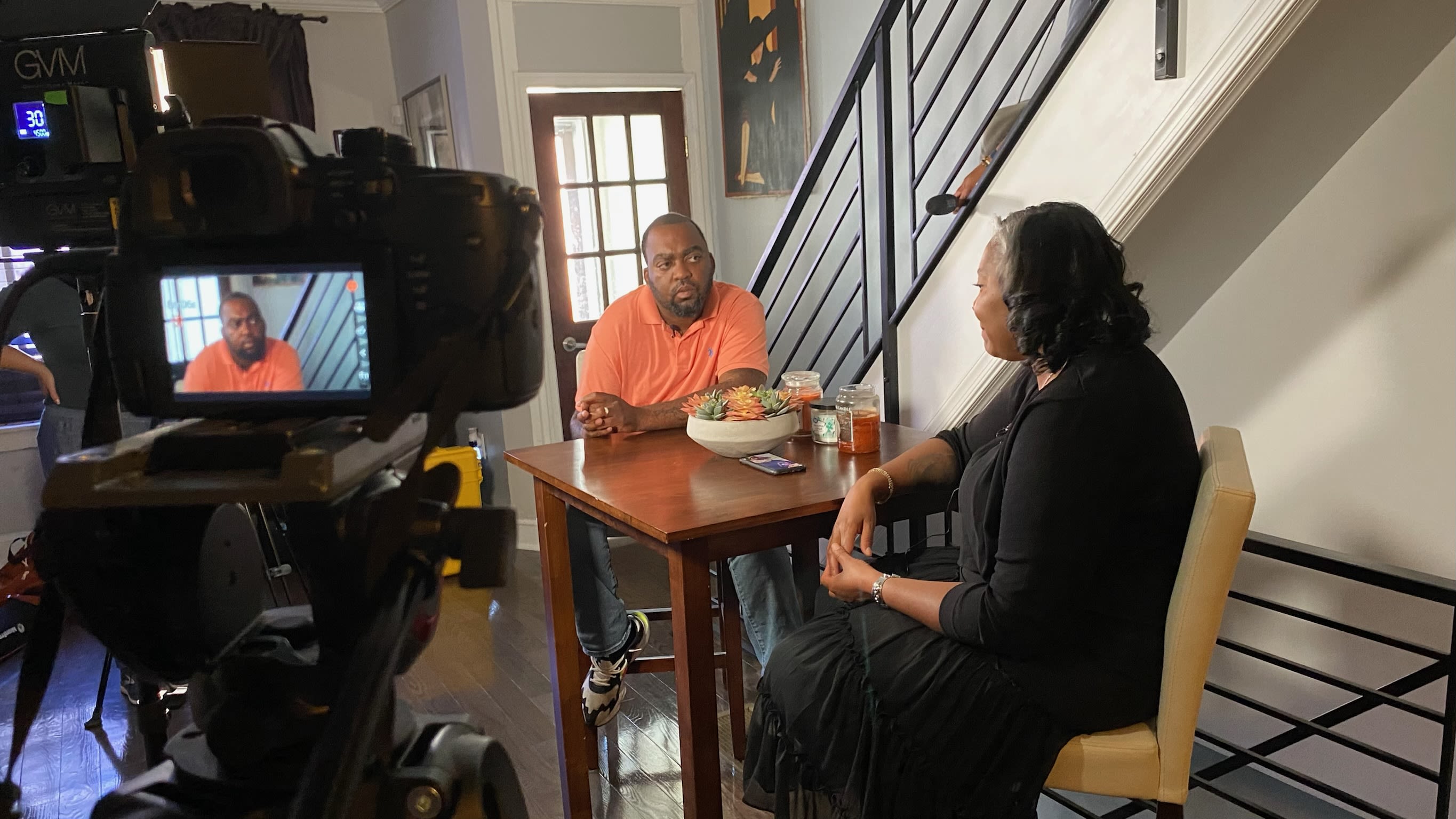

A mutually beneficial partnership
The immediate impact of the Logan Center can also be attributed to the fact that it did not take long to hit the ground running. From day one, the organization was working to build partnerships with key news media organizations.
“Even before Yvonne started in this role, I had already reached out for a meeting, and I knew that I wanted to be a part of this,” said Danya Henninger, director of Billy Penn at WHYY who had been keenly following the launch of the Logan Center since it was initially announced in July 2021.
Latty was more than receptive to Henninger’s eagerness. The two officially met during Latty’s first day on the job and mapped out a potential partnership. It was decided then that both Billy Penn and the Logan Center would partner for a yearlong series that would explore educational disparities within the School District of Philadelphia.
The stories and investigations would be written by Temple student reporters, with Billy Penn editors and staff members assisting with news gathering and editing along the way.
For news organizations like Billy Penn, which does have a full-time investigative reporter on staff, this type of collaboration is immensely valuable as it provides the news outlets with additional resources for investigative reporting. Students are afforded the time to pursue these important stories, as they are hired by Latty and the center. In other instances, the stories are assigned through Klein’s Investigative Reporting course, which is taught by Latty.
“One of the most important things you can do as a journalist is to be a watchdog, and to find out the deeper meaning of things and why things are occurring,” said Fallon Roth, a senior journalism major who was a student in Latty’s class. “As a student, it’s really important to get that experience before you graduate and the fact that we’re able to do this work while also earning bylines for high-profile publications makes it such a win-win for everyone involved.”
The collaboration benefits students in other ways, beyond gaining real-world, investigative reporting experience. Roth, for instance, interned at Billy Penn this summer, and she believes she was able to attain that internship thanks to her class project which was published in Billy Penn.
“I was able to formulate a really good working relationship with Danya (Henninger) through the class, and I stayed in contact with her. I ended up doing another story for Billy Penn. I’d like to say that’s what put me on Billy Penn’s radar for the internship,” said Roth, who also serves as the editor-in-chief of The Temple News, Temple’s student-run newspaper.
Building on a strong foundation
The concept for the Logan Center was conceived by Dean David Boardman who helped raise the funds in building a strong foundation as its chief architect. After an exhaustive search, Latty was hired. If you talk to any student, faculty member or news partner associated with the Logan Center about the reason behind the center’s early success, you are likely to receive the same answer: Latty.
“She has been 200% the reason for the success of the center because she is not just a journalist,” said Oronde McClain of the Philadelphia Center for Gun Violence Reporting, which is another news partner of the Logan Center. “She can relate. She’s from New York, but she knows this community, and she knows how to make their voices feel heard.”
Her ability to gain that trust comes from the fact that she sees herself in many of the residents and communities that the Logan Center regularly covers.
“I feel like Philly’s really desperate. And that’s the feeling that really motivates me,” Latty said. “This job is not about me. It’s about them, the community. I’m not from Philadelphia, I’m from New York, but I’ve been here for a long time, and I grew up in a low-income area. I know what it’s like not to be seen, not to be heard, to be dismissed, to be a statistic and to not matter. So for me, in my heart, the goal of the center is to make sure that people feel like they’re heard and they matter.”
“What Yvonne and the Logan Center are doing requires a level of trust to be able to go out and do this level of reporting, and a lot of that trust is attributable to the bonds, expertise and relationships that she’s built,” added David Brown, a colleague of Latty’s and the assistant dean for community and communications at the Klein College.
With Billy Penn at WHYY, they have explored educational disparities within the School District of Philadelphia. Together with The Philadelphia Inquirer and Temple’s Claire Smith Center for Sports Media, the Logan Center has launched Playing Fields Not Killing Fields: Can Sports Be the Answer?, a special series that investigates the state of North Philadelphia’s recreational facilities and youth sports programs, and how investment in them could help solve the gun violence crisis. These are just some of the partnerships that have been put into place since the center’s inception.
Latty’s work leading the Logan Center earned her recognition this year, as well. She was recently awarded the AEJMC Gene Burd Award for Excellence in Urban Reporting. The award was established 17 years ago “to reward and thereby improve the practice and study of journalism in the urban environment by recognizing high-quality urban media reporting, critical analysis and research relevant to ... city problems, programs, policies and public priorities in urban life and culture.”
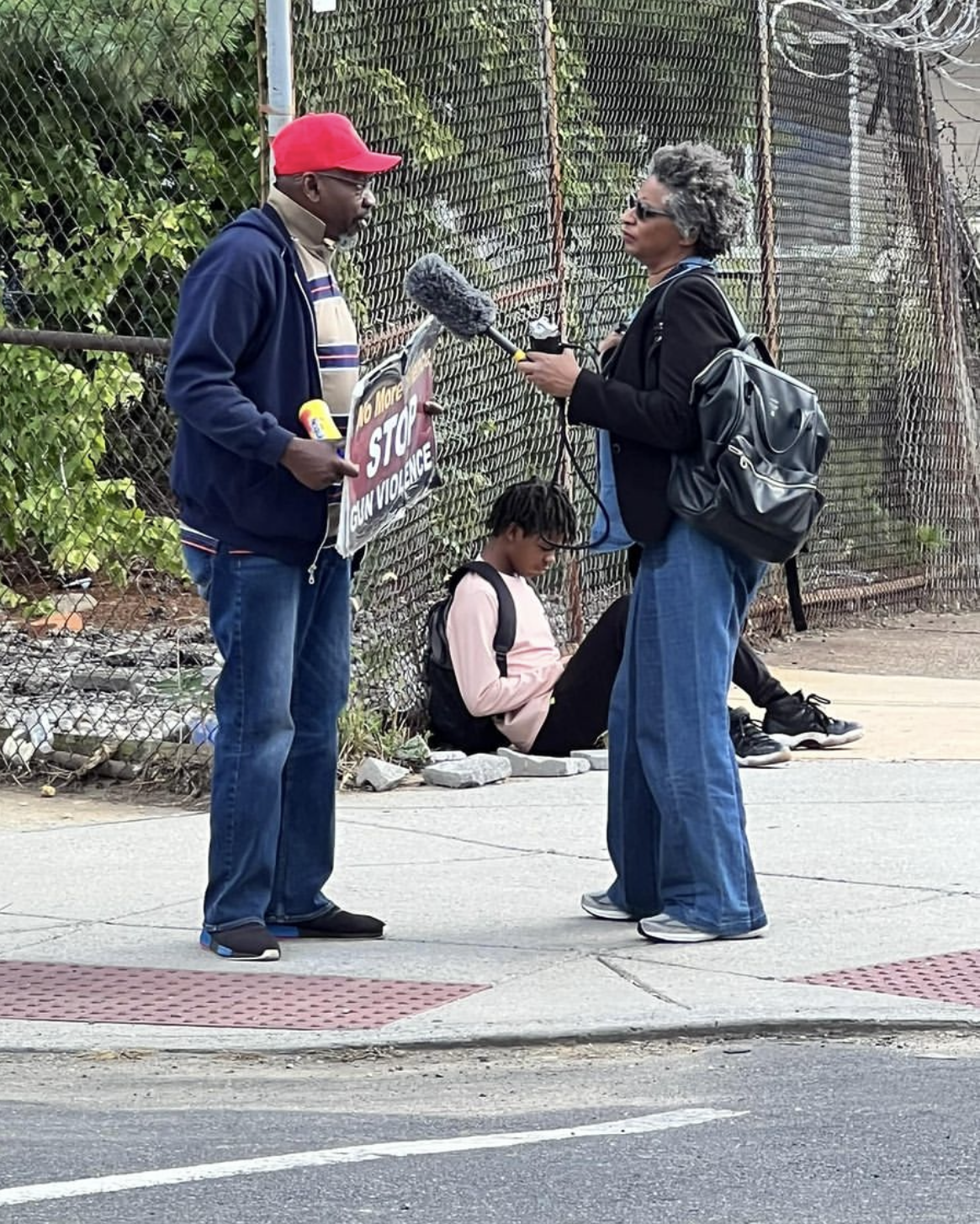
Creating ‘compassionate storytellers’
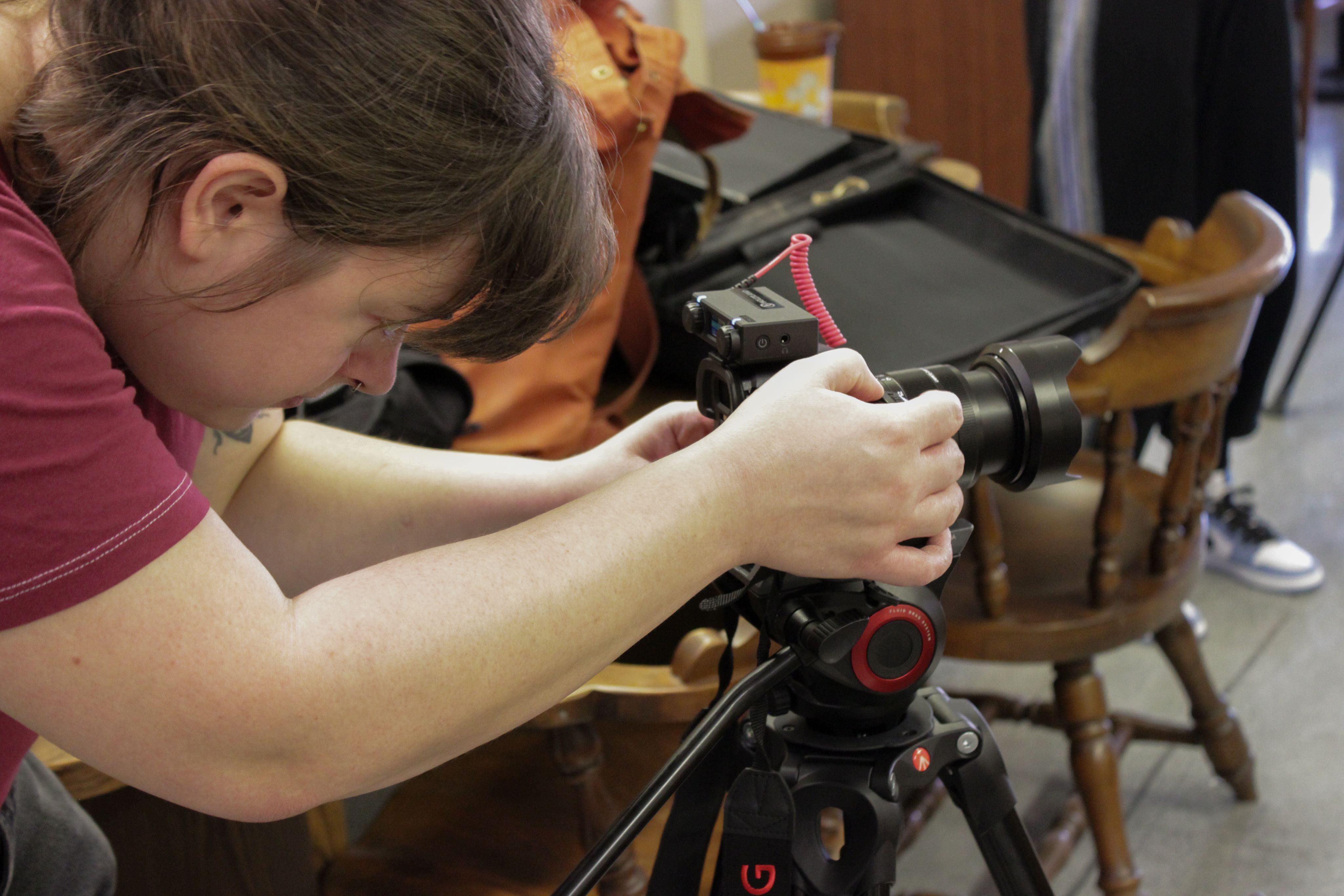
The stories that are being pursued by the Logan Center are not easy ones to tell. Many are serious and somber, requiring a delicate, thoughtful approach from reporters.
This type of storytelling can be seen through the documentary that the Logan Center has partnered with the Philadelphia Center for Gun Violence Reporting/Credible Messenger Program to pursue. Named The Second Trauma, the film focuses on how the actual shooting represents just the first part of the trauma for victims of gun violence.
“Essentially, the film focuses on how after the shooting, victims of gun violence then must deal with an entirely new traumatic experience, which is the media coverage of the event,” said Natalie Reitz, a master’s student who is pursuing a master of arts in media studies and production and also served as director of photography for the documentary. “Something that is really cool about our documentary is that we’re trying to teach journalists about how they can be compassionate storytellers. This is how survivors wish that their stories had been told, so we’re trying to prime journalists to tell better stories in the future.”
In the documentary, McClain meets with individuals in Philadelphia whose lives have been affected by gun violence. The people featured in the documentary have all gone through incredible tragedy, which was exacerbated due to sensationalized media coverage.
For McClain, who also serves as a producer for the documentary, it is a cause that is personal. When he was 10 years old, he was shot in the head and fell into a coma for seven weeks.
Sharing his story while also serving as a sounding board for others to share theirs is equally therapeutic and important. These powerful conversations can help provide journalists with a blueprint for how they can do better.
“The Logan Center is all about the community, that is what this documentary is about, too. This shows how the media needs to be covering communities affected by gun violence,” McClain said. “Beyond that, I am so appreciative to Yvonne for the opportunity to share my own personal story. The media can be harmful, and I hope my voice and the voices of others shows the media what not to do.”
Digging deep into data
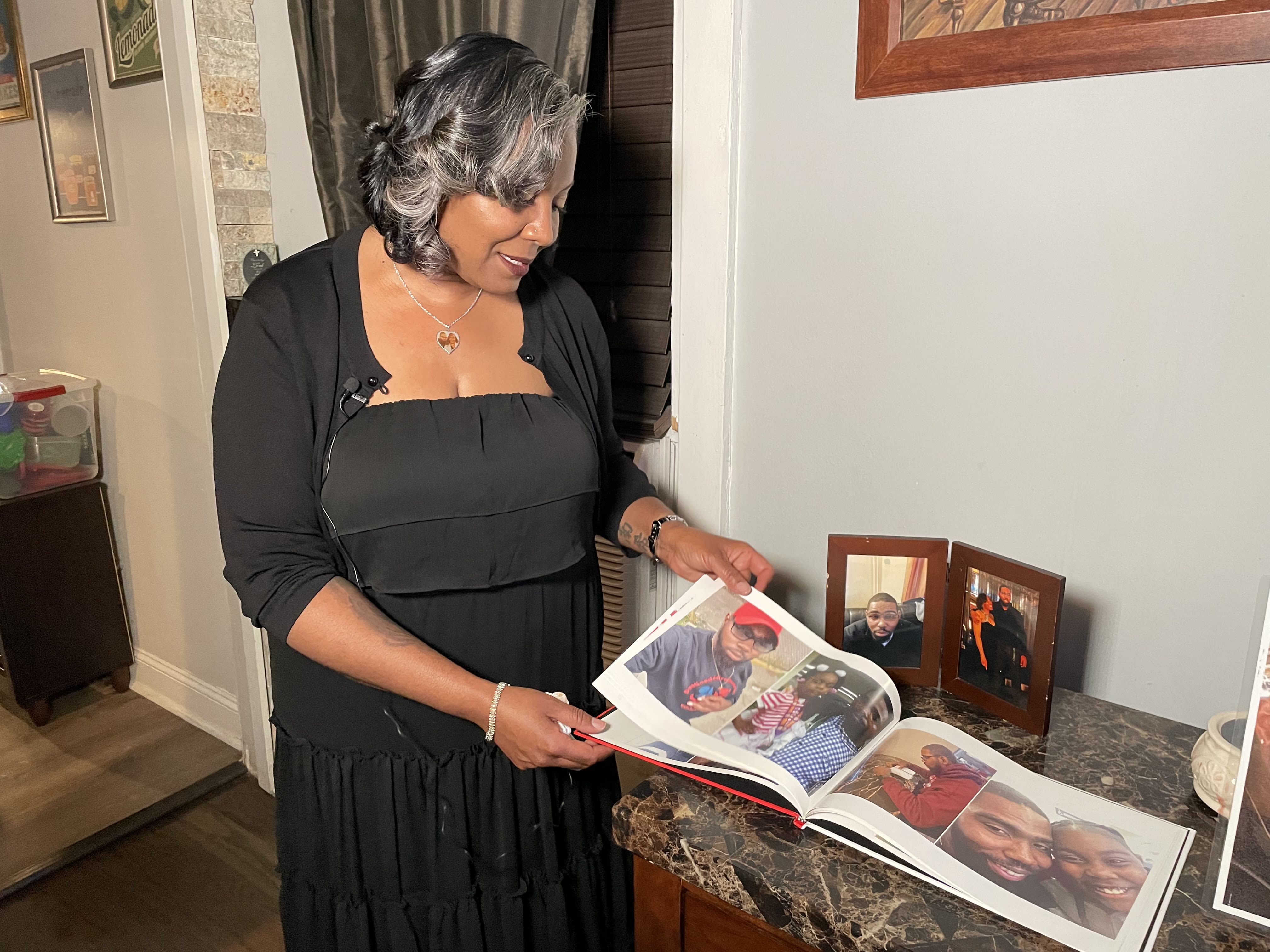
Good investigative journalism often attempts to dig deep and take a close look at numbers and statistics. That has been a priority at the Logan Center, and the work there has been amplified thanks to Temple alum Colin Evans, KLN ’21, who joined the Logan Center in January and serves as its data editor.
“Yvonne’s work and my work really go hand in hand. The data is important because it helps us to understand the key facts of the social issues that we’re doing reporting on,” Evans said. “One of the advantages of data journalism as it relates to these stories is that it allows us to arm the public to go out and actually look into these issues themselves.”
To that point, many stories produced by the Logan Center include a searchable database that members of the public can use to look up information. So, for example, with a school-focused story, the database may include information that shows school trends, guiding people to take the next step and go out and talk to their principal or school official.
In one particular example, Evans and the Logan Center team performed a data analysis of the facilities at Philadelphia’s schools.
Some of the key takeaways from that analysis include the following.
“In instances like this, I think the data helps people see how those numbers are making a day-to-day impact on people’s lives,” Evans said.
Not all great investigative reporting is grounded in numbers though. For instance, as part of their reporting, members of the Logan Center kept hearing positive feedback regarding neighborhood school Furness High School.
“Members of that community would beam when discussing the school,” Henninger said. “This is a traditional neighborhood school, and there was just so much pride among the community there.”
The Logan Center decided to take a closer look, fielding conversations with dozens of community members. They ultimately found that the common denominator was Principal Daniel Peou. His decadelong tenure has been a stabilizing force for the school, and this revelation is also informing future coverage.
Data will also play a key role with informing a soon-to-be-launched series on charter schools, which will be the continuation of the collaboration between the Logan Center and Billy Penn. The series hopes to examine how charters affect educational disparities in the city from the viewpoint of admissions, academic performance, facilities health and the teacher experience, among other factors.
The future
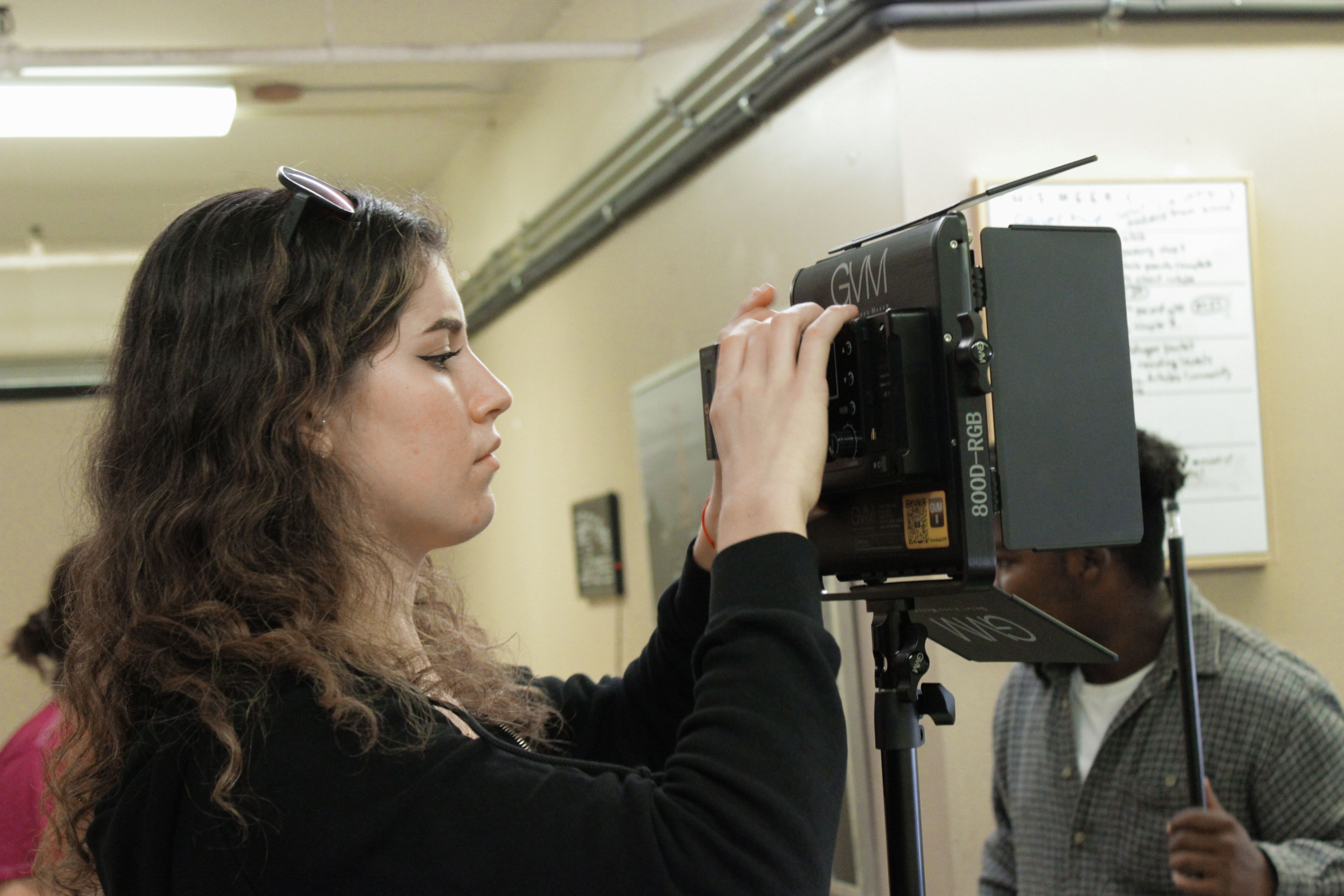
As the Logan Center enters its second year of existence, big plans are already in place.
The center has entered into a collaboration with The Trace, an American nonprofit journalism outlet devoted to gun-related news in the United States, to report on the effects of the sound of gunfire. As previously noted, they will also continue their collaboration with Billy Penn and will this time explore charter schools, which now comprise about a quarter of schools managed by the School District of Philadelphia. They receive government funds like all schools within the district, but in Pennsylvania they are managed privately by nonprofit organizations.
They also will be working again with WHYY News on a new podcast series and multimedia project.
“We’re excited about the next project, and are certainly interested in telling rich narratives,” Glover said. “I think round two is going to be just as special as round one. I’ve had a few people say, ‘Well, is there a part two (to Stop and Frisk: Revisit or Resist)?’ But in my view, you can bookend a really good story, and I believe the five episodes was that story. But I think everyone will be excited with what we have underway.”
The Second Trauma documentary will also soon be released.
“Investigative journalism centers like this are pretty new to higher education, and I have really never seen anything quite like what we’re doing,” Latty said. “We are pursuing very intense, big data-focused stories that directly affect this community. These are complicated stories with a lot of moving parts, and I am really excited to see our work continue to grow.”
As the Logan Center’s work grows, the opportunities for journalism students will grow, too.
“I love working with Yvonne and through the Logan Center. I feel like I have grown so much thanks to this experience,” said Reitz, who has been heavily involved with the Logan Center since its launch. “I want to work with WHYY after I graduate, and I feel as if the work I have done with Yvonne is prepping me for just that.”
